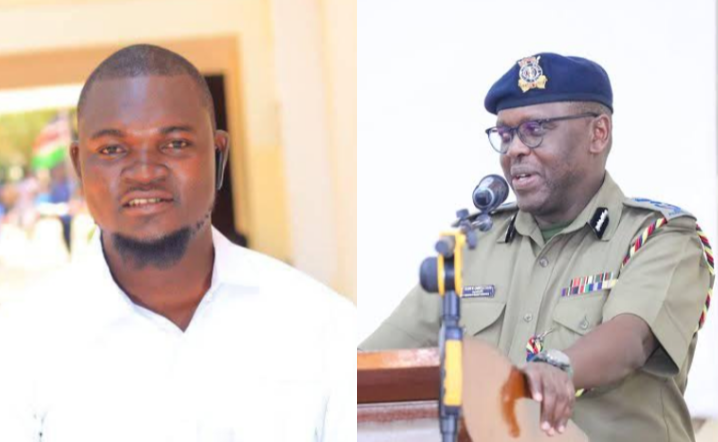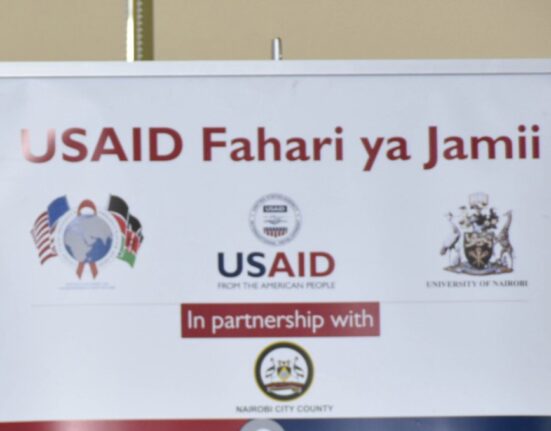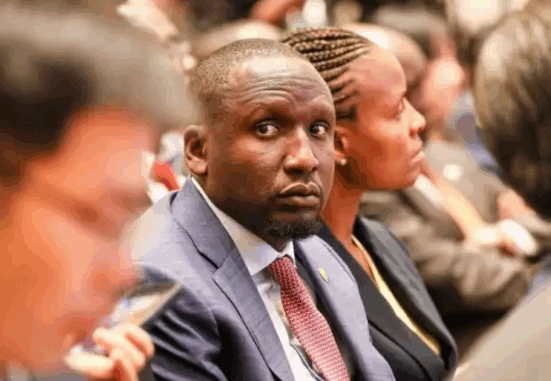Albert Ojwang, a young Kenyan who was active on social media, is now dead under suspicious circumstances. What began as a few online comments about Deputy Inspector General Eliud Langat has ended in tragedy, leaving behind a wave of anger, fear, and unanswered questions.
His arrest, and what followed, paints a disturbing picture of how the state may be using fear to silence critics, especially young voices online.
According to reports from Cyprian Is Nyakundi, Ojwang was allegedly taken by officers last Saturday. His friends say he was picked up quietly after making remarks on X, a platform where he had steadily gained attention for his bold opinions.
Strangely, there is no official record of his arrest no entry made in the police station’s logs. Yet by the next morning, police claimed he was dead.
The explanation given was that he had harmed himself while in custody. But people close to Ojwang aren’t buying it, and neither are rights groups who believe this points to a deeper rot in the system.
The idea that someone can be arrested, held in a police cell, and be found dead within hours without any trace of due process should terrify every Kenyan.
The lack of a record suggests the arrest was never meant to be lawful it was meant to be secret. In a functioning justice system, a suspect is booked, charged, and given a chance to defend themselves.
Ojwang never got that chance. What he got was death in a cell, and a quick excuse by authorities.
The same weekend Ojwang disappeared, Musalia Mudavadi stood on a public podium warning youth about the dangers of careless posts online.
He said countries were watching people’s digital trails and that jobs, visas, and opportunities could be lost because of what someone shares.
While that message may hold truth in some contexts, it misses the more urgent danger facing Kenyan youth, state crackdown.
What we are seeing is not just digital caution it is the real possibility of being hunted down for having an opinion.
Albert’s case is not the first. Others have complained of online intimidation, secret arrests, or visits by plainclothes officers after criticizing powerful figures.
But in Ojwang’s situation, the outcome was fatal. It exposes the reality that there’s a fine line between enforcement and abuse, and Kenya’s security agencies seem to have crossed it.
What’s even more troubling is the silence from top officials. Instead of speaking out against what happened, the government appears more focused on framing youth as irresponsible internet users.
They are painting victims as the problem, not the system that detains people off the record and ends their lives behind bars.Calls are now growing louder for an independent inquiry.
People want to know what happened inside that cell.
Was there CCTV? Where are the arresting officers? Who saw him last alive? The explanations so far don’t hold water. “Self-harm” is a line the police have used too often in suspicious cases, and rarely is it backed by real evidence.
The same platforms that allow citizens to question leaders are now being turned into hunting grounds for the police.
It’s time those in power stop hiding behind speeches and face the real problem: the abuse of force and the eroding space for free expression in Kenya.









Leave feedback about this